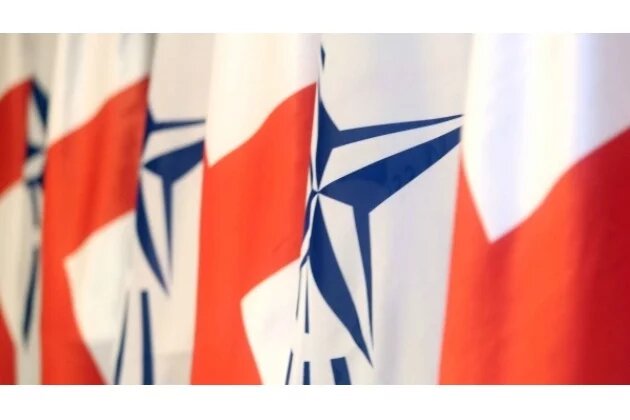
As far as Georgia’s foreign policy is concerned, 2016 is likely to witness so many pivotal moments, both on the international arena and in Georgia’s domestic politics, that it seems especially difficult to make any accurate predictions about possible outcomes. There are simply too many variables and a change in each of them has the potential to overturn the established course of events. To name just few of these variables: defining elections will be held in the US, the war in Ukraine remains extremely volatile and prone to radical alterations, the EU is facing a ‘migrant crisis’ and a potential Brexit, NATO will continue to decide on its strategy against resurgent Russia, NATO military buildup in Eastern Europe has yet to face counter-reactions from Moscow, Georgia is inching closer to the EU, and finally, Georgia is facing one of the most important and diverse elections in its recent history. Georgia’s pro-Western foreign policy goals may encounter quite a few challenges and complications in this course of events.
Euroatlantic Integration in National Politics
Georgia’s aspirations to become part of the West seem extremely unwavering. Joining both NATO and the EU have become concurrent projects that are pursued vigorously even under the current government, which proclaims itself to be much more moderate in its relations with Russia. No matter what outcomes or potential downsides we expect, it is still relatively certain that Georgian aspirations towards the West are extremely unlikely to fade. Virtually the entire domestic political spectrum, apart from some eccentric deviations (such as the Democratic Movement – United Georgia, headed by the former chair of the Georgian Parliament, Nino Burjanadze, or the conservative Patriotic Alliance, for example), concur on the country’s European orientation, which has become a part of the national narrative in the post-Soviet period. It will take an extremely violent storm in international or internal politics for Georgia’s Western aspirations to wholly vanish. There might be some gusts this year, but hopefully, no storm.
That said, it is also possible that after the upcoming domestic elections in October, the abovementioned eccentric deviations become potential coalition partners of the winning party. This could potentially introduce some cracks in the course of Georgia’s foreign policy. To be sure, it is extremely unlikely that Georgia’s pro-Western orientation will be overturned overnight, but it is possible that there will emerge some criticism of NATO, which may gain traction among certain parts of the politically disenchanted populace. In taking preemptive action against such rhetoric, it is important to keep in mind some of the main arguments in favor of NATO membership.
While generally it is quite true, that you can be a part of the West, but not a part of NATO (like Sweden, Finland, Ireland, Switzerland and Austria), it would be incorrect to assume that for Georgia such an option is realistic and viable. Under the current political circumstances, even two historically non-aligned European countries, Sweden and Finland, seek much closer cooperation with NATO.[1] There are strong expectations that during the upcoming July 8-9 NATO summit in Warsaw, the question of those two countries deepening their relations within the alliance will also be raised. The explanation for such a shift lies in the fact that the post-Cold war geopolitical landscape in Europe prompts historically non-aligned countries to change their positions. While during the Cold War, there were relatively clear lines of separation between the two global super-powers, after the dissolution of the Soviet Union, it has become rather uncertain where exactly these lines are located. In its quest to reclaim some of its lost glory, Putin’s Russia seeks to redraw the geopolitical map of Europe. By occupying parts of Georgia in 2008 and Ukraine in 2014, Moscow has demonstrated its unwillingness to accept the post-Cold War reality of independent, sovereign states flourishing across its border.
Russian Expansionism and NATO
From the Russian perspective, the confrontation with the West is not simply of a geopolitical or a mercantilist nature; it is also an ideological struggle. On October 3rd, 2011, Putin published a famous article in Izvestia where he announced the creation of the Eurasian Economic Union between Russia, Belarus and Kazakhstan. According to the article, in order to form a more highly integrated international entity, the Economic Union should be followed by a political Eurasian Union. While the article is not rife with direct references to a distinct Eurasian ideology, Putin still mentions “the myriad of civilizational and spiritual ties uniting our nations.”[2] Furthermore, it sets out the task of creating the Eurasian Union as a counterpart to the European Union. So, rather than treading the European path, Putin’s Russia is moving towards forging its Eurasian identity.[3]
As Russia drifts further and further away from Europe, it is quite likely that in the future it will be more and more aggressive towards dissenting moves from its neighbors, especially, if it feels that the Eurasian project is under threat. What is at stake here is not simply the freedom to make an independent foreign policy choice, but also the future of liberal democracy in Georgia and the region. The Eurasian Economic Union is a club of autocratic rulers, governing repressive societies, whereas the European Union and NATO, despite their shortcomings, unite a progressive and equal society. So, in any ideological confrontation that might be awaiting Georgia in the future, given the ascending Eurasian movement, the country has to make a clear choice between two sides. The urgency of the choice is even more pronounced if we take into account the fact that Russia considers Georgia to be representative of Eurasian culture, which is dominated by Orthodox Christianity.
No matter what outcomes Georgia will face in this eventful year, it should hold firmly to its chosen path toward Europe and the West. First and foremost, this means an increased commitment to move closer to NATO, the only military guarantee against expansionist Russia.
